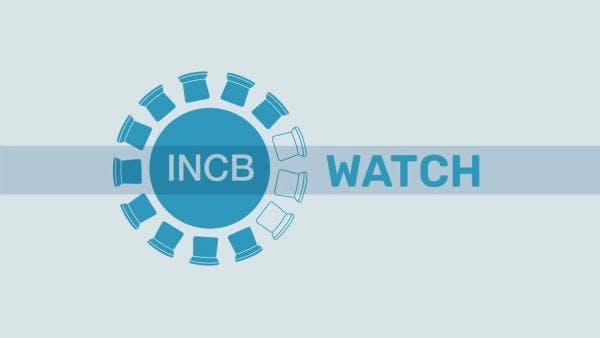INCB criticizes voting of Uruguay's cannabis legalisation bill
The INCB has issued a press release on 1st August 2013, commenting on the recent vote in the lower house of the Uruguayan parliament to approve proposals to create a regulated market for cannabis in that country. It is a relatively short and restrained statement, released in the name of the INCB Chairman, Raymond Yans.
This is the INCB quite properly doing its job – they have been in correspondence with the Uruguayan government as these proposals have emerged, and have quite rightly pointed out that, should a regulated market be introduced and administered by the Uruguayan government, they would be in clear breach of the UN Drug Conventions that they are currently a party to.
The restrained tone of the press release is also a welcome departure from some of the INCB's previous megaphone diplomacy. We hope that, in this case, the INCB continues to focus on dialogue with the Uruguayan government, and resists the temptation to put pressure on a member state through behind-the-scenes plotting with other member states, or statements in the press or CND meetings.
While it is understandable that the INCB is frustrated not to have been asked to visit Uruguay to discuss the situation, the Uruguayan governments reticence is also understandable – INCB visits in sensitive political situations have previously been used to rally opposition to a particular reform, and we have already seen many instances where the current Chairman uses media statements to attempt to influence national debates.
What is needed now – in the run up to the vote in the upper house that may confirm the implementation of the reforms – is for the INCB to work quietly and collaboratively with government officials in Uruguay to assess the options open to the government in reshaping its relationship to the Conventions should the regulation initiative proceed. The INCB needs to work with governments to resolve the increasing dilemmas between their domestic policies and international treaty obligations, rather than trying to pressure them out of democratically developed reforms.
Topics
Regions
Related Profiles
- International Drug Policy Consortium (IDPC)
- International Narcotics Control Board (INCB)
